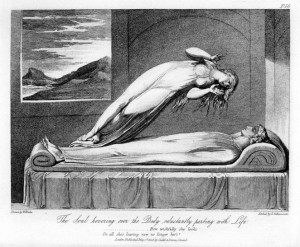The latest version of my sonnet on the moon. In my previous version I identified rhythmic problems to do with the shift from iambic pentameter to trochaic pentameter in the second quatrain. It meant the loss of a syllable at the end of the iambic lines in order to keep the meter fluid – a compromise I was not willing to make. At the same time, it was conceptually clunky, failing to segue adequately between quatrains and sextet. This one is closer, still, to where I am heading with this:
Man In The Moon

“When witches long ago beheld the moon
they conjured up a man hunched with a pack.
Astronomers spied ‘seas’ that would maroon
A sailor in a tranquil well of black.
Later, truer lenses picked out craters
ringed by nightbound mountains. Violent meteor
storms had tattooed deep on Luna’s face a
shadow-man – an ink-blot human creature.”
A woman, thinking, as she travels, weaves
her moonbug’s track through lunar rocks and dust –
“Technology sustains life and relieves
our need for faith or guesswork – even trust…”
The Cosmos is a mirror to each mind:
Look long upon its glass: What will YOU find?
Copyright (c) 2011, Matthew Wingett



